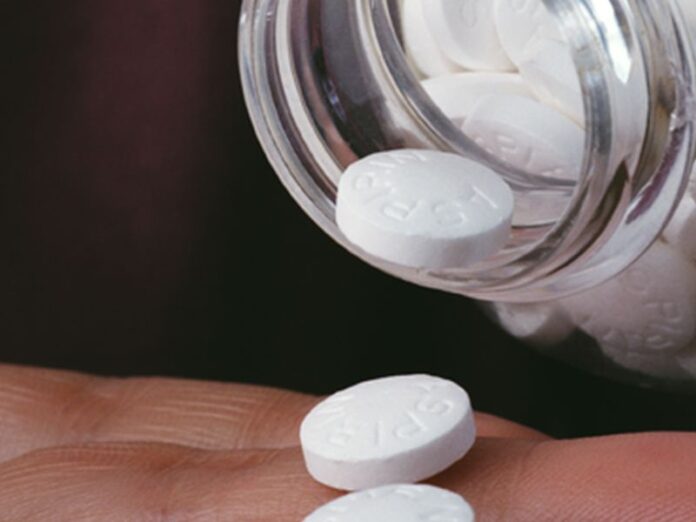Last Updated on April 23, 2024 by Silvy
Low-dose Aspirin May Boost Immunity, Reduce Colorectal Cancer Risk
New research suggests regular low-dose aspirin use might enhance the immune system and lower colorectal cancer risk.
Studies have already shown a link between aspirin and reduced colorectal cancer risk. This new study proposes that aspirin may achieve this by strengthening the immune system’s ability to detect cancer cells.
However, aspirin isn’t suitable for everyone and may be most beneficial for those at high risk of cardiovascular disease.
Your lifestyle choices also significantly impact your risk of colorectal cancer. Early detection through regular screenings can significantly improve treatment outcomes.
How Aspirin May Protect Against Colorectal Cancer
Exactly how aspirin protects against colorectal cancer remains under investigation.
While one mechanism involves inhibiting inflammation-promoting enzymes, other mechanisms are likely at play.
A recent Cancer journal study explored one of these potential mechanisms. Researchers examined tissue samples from colorectal cancer patients, including some who were aspirin users.
They found aspirin users had:
- Less cancer spread to the lymph nodes
- Higher levels of immune cells infiltrating tumors
Lab experiments supported these findings. When researchers exposed colorectal cancer cells to aspirin, they observed increased expression of a protein called CD80 on certain immune cells.
This protein strengthens the immune system’s ability to identify and target cancer cells.
The study’s lead investigator, Dr. Marco Scarpa, noted that aspirin absorption in the rectum is lower than in the colon.
He suggested future research focus on methods to ensure sufficient aspirin reaches the colorectal tract.

Study Limitations
The researchers acknowledged the study’s observational nature limits determining how long participants took aspirin before their diagnoses.
Additionally, self-reported aspirin use might not be entirely accurate.
An expert not involved in the study pointed out the lack of a control group weakens the study’s design. Controlled trials are necessary to rule out confounding variables and biases.
Risks of Low-Dose Aspirin
Before considering aspirin for cancer prevention or any other condition, it’s crucial to understand the potential risks and side effects.
Long-term aspirin use can increase the risk of gastrointestinal bleeding, ulcers, and other complications. This is especially true for people with a history of gastrointestinal issues or bleeding disorders.
Aspirin can also interact with other medications, so consulting a healthcare professional before starting aspirin therapy is essential.

Reducing Colorectal Cancer Risk
A certified healthcare professional not involved in the study emphasized that lifestyle choices play a vital role in reducing colorectal cancer risk.
Here are some key strategies:
- Regular Screenings: Early detection through screenings like colonoscopies or stool sample tests is crucial for successful treatment. The recommended screening schedule may vary depending on your family history.
- Healthy Diet: Consume a diet rich in fiber, fruits, vegetables, and whole grains.
- Regular Exercise: Engage in regular physical activity.
- Moderate Alcohol Consumption: Limit alcohol intake.
- Smoking Cessation: Avoid smoking.
- Family History Awareness: Be aware of your family’s history of colorectal cancer.
Conclusion
While low-dose aspirin use has been linked to a reduced risk of colorectal cancer, this new study suggests a potential mechanism: enhanced immune system function.
However, aspirin isn’t suitable for everyone, and it’s crucial to weigh the risks and benefits with your doctor.
There are other effective strategies for reducing colorectal cancer risk, including maintaining a healthy lifestyle and getting screened regularly.
FAQs about Low-Dose Aspirin and Colorectal Cancer
Can low-dose aspirin help prevent colorectal cancer?
Studies suggest that taking low-dose aspirin regularly may be associated with a lower risk of colorectal cancer. This new study proposes that one way it might work is by enhancing the immune system’s ability to detect cancer cells.
Is low-dose aspirin safe for everyone?
No, aspirin is not suitable for everyone. Long-term use can increase the risk of gastrointestinal bleeding, ulcers, and other complications, especially for people with a history of these issues or bleeding disorders. It can also interact with other medications. Talk to your doctor before starting aspirin therapy.
What are some other ways to reduce colorectal cancer risk?
Here are some key strategies:
- Regular screenings: Early detection through screenings like colonoscopies or stool sample tests is crucial. The recommended schedule may vary depending on your family history.
- Healthy diet: Eat plenty of fiber, fruits, vegetables, and whole grains.
- Regular exercise: Engage in physical activity regularly.
- Moderate alcohol consumption: Limit alcohol intake.
- Smoking cessation: Avoid smoking.
- Family history awareness: Be aware of your family’s history of colorectal cancer.
Reference Links
National Cancer Institute: https://www.cancer.gov/types/colorectal/hp
American Cancer Society: https://www.cancer.org/cancer/types/colon-rectal-cancer.html
U.S. Department of Health and Human Services: https://health.gov/healthypeople/tools-action/browse-evidence-based-resources/colorectal-cancer-screening
Study on Aspirin and Colorectal Cancer: This study is referenced in the text but doesn’t have a publicly available link yet as it’s a new publication (April 22, 2024).
You can try searching for it by title and publication date in a scholarly database like PubMed (https://pubmed.ncbi.nlm.nih.gov/) in the future.


